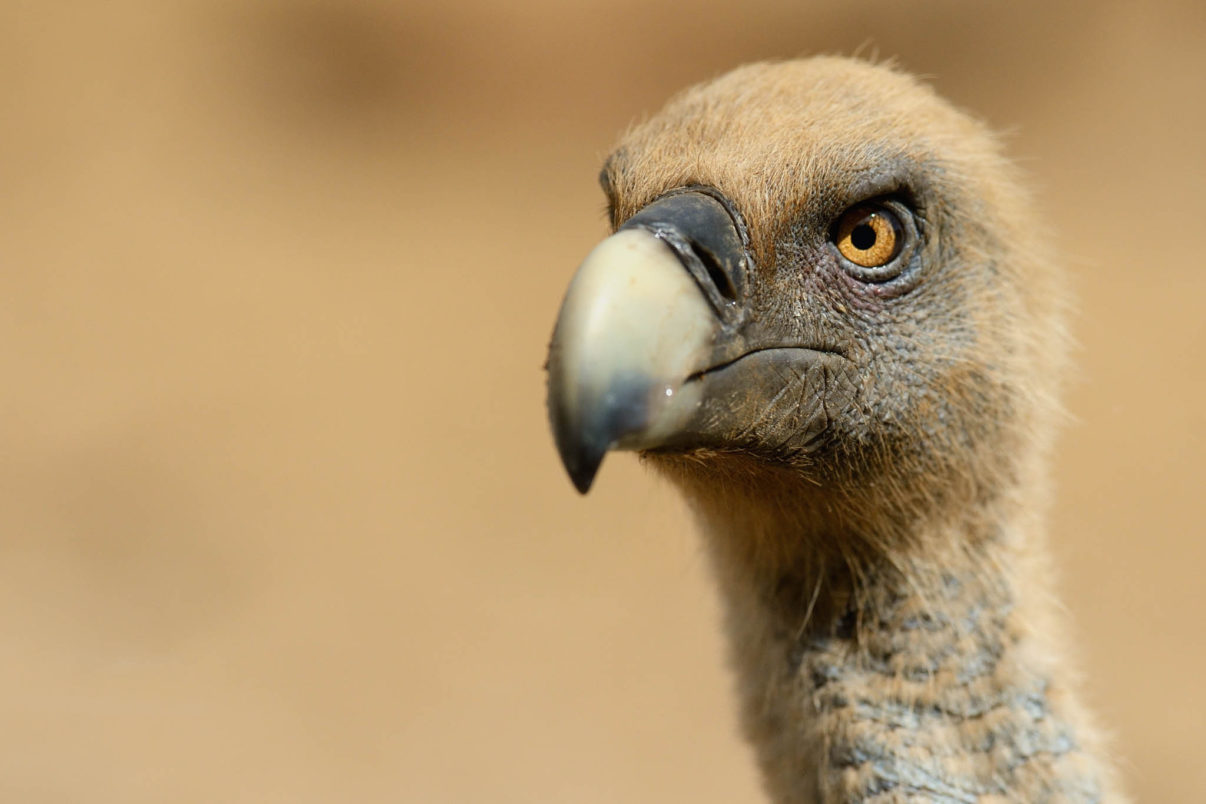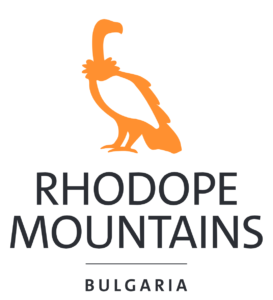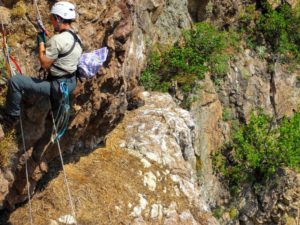Two juvenile griffon vultures from the Eastern Rhodopes were equipped with GPS transmitters recently by the local rewilding team. This technology will provide critical data on the distribution, migration and possible threats to the birds, enhancing conservation of this magnificent yet locally endangered species.

Keeping track
 The end of June saw two more griffon vultures tagged with GPS transmitters in the Rhodope Mountains rewilding area in southeastern Bulgaria. The birds were also measured, biologically sampled and fitted with rings and wing tags.
The end of June saw two more griffon vultures tagged with GPS transmitters in the Rhodope Mountains rewilding area in southeastern Bulgaria. The birds were also measured, biologically sampled and fitted with rings and wing tags.
This means 29 griffon vultures and 26 black vultures have now been tagged as part of the ongoing LIFE Vultures project, which has been working to support the recovery and expansion of the black and griffon vulture populations in the Rhodope Mountains of Bulgaria and Greece since 2016.
Paying testament to project efforts, 95 griffon vulture pairs were counted in the Rhodope Mountains rewilding area earlier this year, up from a low of just three nesting pairs in 1986.
Fantastic flights

While adult black and griffon vultures are generally thought to be sedentary birds, the data collected by the Rhodope Mountains rewilding team has shown that griffon vultures from Bulgaria and black vultures from Greece regularly cross the Bulgarian-Greek border in search of food.
Even more remarkable than this are the huge journeys that tagged juveniles of both species have been shown to make. Juvenile griffon vultures frequently voyage as far as the Middle East, while in 2017 a juvenile griffon vulture flew over 5,700 km from the Rhodope Mountains to South Sudan.
Young black vultures have also been known to wander huge distances. In March a tagged juvenile named “Chrysoula” made a 3200-kilometre, 17-day journey over the Balkans, while in 2018 “Helena” travelled nearly 2200 kilometres in 11 days, flying directly over both the Southern Carpathians rewilding area in Romania and the Rhodope Mountains rewilding area in Bulgaria.
The Rewilding Rhodopes website features a live vulture tracker showing the (almost) real time routes of birds tagged as part of the LIFE Vulture project.
Vulnerable vultures
It is thought that the nomadic behaviour displayed by young black and griffon vultures may be a result of their instinct to disperse, as they seek out other locations to colonise.
GPS transmitters have shown that young vultures are often highly vulnerable, especially during their wanderings, with around 70% failing to reach maturity.
Since the beginning of 2019 three black vultures in the Greek part of the Rhodope Mountains have been found poisoned, while in mid-April a griffon vulture fitted with a transmitter was also found dead.
Essential support
The five-year LIFE Vultures project was developed by Rewilding Europe, in collaboration with the Rewilding Rhodopes Foundation, the Bulgarian Society for the Protection of Birds(BSPB), WWF Greece, the Vulture Conservation Foundation and the Hellenic Ornithological Society/BirdLife Greece.
Focusing on the Rhodope Mountains rewilding area in Bulgaria, as well as a section of the Rhodope Mountains in northern Greece, the aim of the project is to support the recovery and further expansion of the black and griffon vulture populations in this part of the Balkans, mainly by improving natural prey availability, and by reducing mortality through factors such as poaching, poisoning and collisons with power lines.
Want to know more?
- Visit the Rewilding Rhodopes website
- Read about the LIFE Vultures project
- More about the Rhodope Mountains rewilding area
- Visit the Rewilding Rhodopes Facebook page
